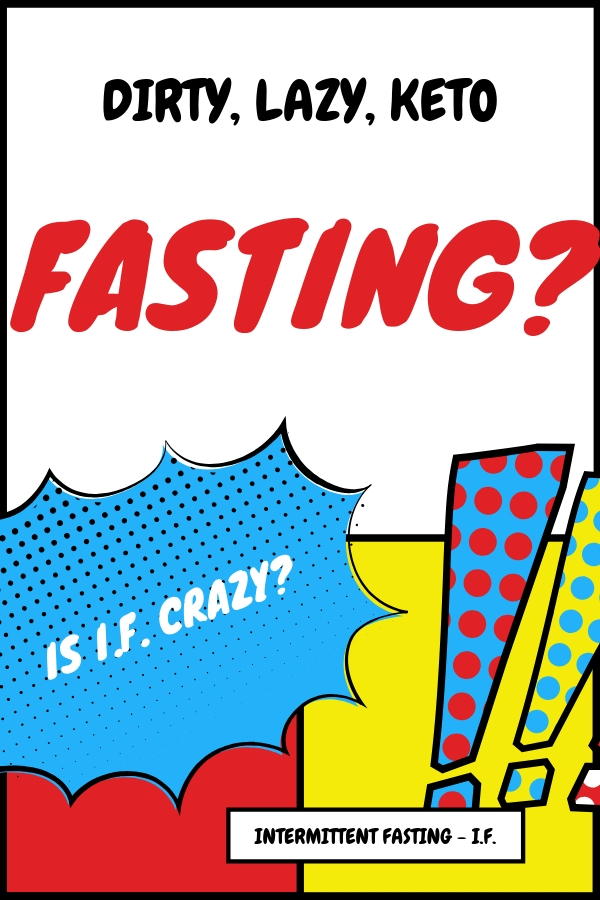Let’s talk about fasting and intermittent fasting as it relates to weight loss on a ketogenic diet. This might sound intimidating or scary for some. You might even be thinking, is fasting really necessary? Let me share my surprising thoughts on how NOT fasting helped me lose 140 pounds (keto video included!). First, I want to tell you a little story…
I recently went skiing for the first time in 20 years. After losing 140 pounds on a DIRTY, LAZY, KETO diet, I’m finally slim enough that I won’t topple over like a Weeble Wobble with two sticks attached to my feet. Aside from my fears about getting on and off the ski lift, I had serious food anxiety about being away from my refrigerator for several hours. I tend to snack a lot, and not necessarily because I’m hungry. My snacking might just be a habit, but I also think it’s a deeper issue. I have a secret fear that if I become too hungry, I will lose all self-control and start chowing down on carbolicious treats and gain all my weight back.
When I hear about people INTENTIONALLY not eating for hours (or days) on end, I am honestly mystified. HOW is that possible? And perhaps the more important question, WHY WOULD ANYONE DO THAT? I talk about intermittent fasting and fasting more in this video on the DIRTY, LAZY, KETO YouTube channel.
Current research shows enormous benefits to fasting. Captain Obvious talking here, but eating less (or not at all) tends to promote weight loss. I get that. Insulin and glucose levels plummet with a lack of food in the body. Weight loss, in turn, reduces the chances of diabetes, decreases inflammation, and promotes overall good health. I get that.
Fasting means NOT eating for a planned period of time. Intermittent Fasting is a cycle or pattern of eating versus not eating. There are many variations on this theme, like not eating for so many hours (or days), but all have the same notion. NO FOOD.
Intermittent Fasting or “I.F.” seems like a fancy term for deciding not to eat for a few hours. Skipping breakfast or not eating after dinner might help some folks reduce their overall caloric intake. This is especially true for mindless eating in front of the TV, or eating meals because “it’s time” (even though you aren’t even hungry). I completely endorse the I.F. concept, but I do chuckle when everyone makes a big deal of it by calling the phenomenon an important scientific phrase. Instead of calling this intermittent fasting, how about we just say EAT WHEN YOU’RE ACTUALLY HUNGRY.
Is there a difference between fasting and intermittent fasting?
Fasting – Not eating for days. It seems like a contest on Facebook these days to see who can be closest to Gandhi. Is this a competition? Are folks bragging about how many days they can go without eating? If you couldn’t tell anyone about your fast – would you still do it?

Aside from weight loss, why would someone choose to fast? I’ve heard about the “sixth gear” or mental clarity that people can experience during a fast. I’m curious about what motivates a person to practice fasting (beyond weight loss). Mind you, I haven’t tried fasting, so I am speaking from total ignorance here, but it sounds horrible. I’m sure there is a technical explanation out there about resetting the body’s thermostat and rebooting metabolism (Dr. Fung in The Obesity Code explains this nicely), but is this the REAL reason people fast? Is fasting necessary to lose weight?
Fasting, on the surface level, seems to be an exercise of self-control. But could fasting also represent something completely different? Perhaps fasting is not about punishing oneself, but instead a break from worrying about food. My judgemental eyes were recently opened with compassion when a friend shared she feels so much relief during a fast. Because she stresses so much about her food choices, the fast felt like a vacation from constant worry. I realized by hearing her perspective that we all have a unique path to follow in our weight loss and that there is no “one size fits all” approach that is right.
If you’re like me and have suffered from obesity most of your life, you may not even know what hunger pain feels like. I had numbed that feeling with a constant drip of carbohydrates for decades. Call me crazy, but I don’t want to feel hunger pangs; That’s why I eat a DIRTY, LAZY, KETO diet. I want to feel happy, not “HANGRY.” Fasting does not appeal to me. I like food and I love to eat!

When you see me on the ski slopes, with my pockets stuffed with snacks (yes, I did have a Ziplock full of bacon inside my jacket), know that eating often CAN help you lose weight. You don’t need to starve yourself to be successful. I give you total permission to NOT fast. I was able to lose over half of my body weight without engaging in fasting! In fact, I think the key to my success in weight loss and maintenance has been eating frequently. That’s the opposite of fasting!
Stephanie Laska has lost 140 pounds and has kept the weight off for almost a decade. She is the USA Today Bestselling Author and Creator of DIRTY, LAZY, KETO with a whole series of books to help you on your journey.

Related Keto Lifestyle Posts:
Signs You Are Doing Keto Right
Need more support? Stephanie also leads a small group, premium keto support group on Facebook – for women only.





